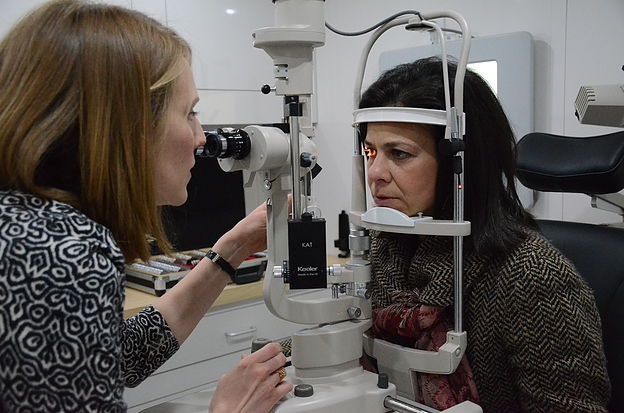
You know how there’s always a few words that you hear all the time, but never remember how to pronounce? Well that’s the thing with eye care professionals. Those “O” words are sometimes hard to pronounce and even harder to remember and distinguish from each other, but they’re important to learn regardless of whether you’re saying them correctly or not.
Eye care professionals are split up into three groups. Each group serves a specific purpose and there is some crossover between professions depending on someone’s experience. Here’s the breakdown:
-
Ophthalmologist: These M.D.s specialize in eye surgery, typically focused on surgical cases and rare pathology treatment. They defer contact and spectacle lens creation to optometrists who focus on regular eye needs more extensively and have superior knowledge of such products. Ophthalmologists differ first and foremost in that they are the MD of the group. Licensed surgeons, ophthalmologists go through years of schooling and training like any other surgeon.
-
Optometrist: Optometrists are an important conduit for eye care as they act as the gateway to eye care for a large portion of the population. Optometrists can treat diseases medically, prescribe spectacles or glasses, and perform various contact lens, low vision, and vision therapy services. Optometrists attend four years of Optometry school and are licensed in a variety of skills, predominantly pertaining to day-to-day eye and vision care.
-
Optician: Opticians make up the largest percentage of the three professions as their skills are applicable to any and all glasses or contact lens wearers. They are responsible for measuring and fitting frames and assuring quality control of the spectacles prescribed by optometrists and ophthalmologists. Without quality opticians, most patients would not return to their eye doctor, as the products they are prescribed are key to future comfort. There is a saying in eye care: “If the glasses aren’t made right, the patient will never come back.”
While these three categories sound similar, each role is very different. If you ever have any questions or concerns about your eye or vision health, visiting your local optometrist is always a great first step. If you need specific care for a more serious issue, the optometrist can refer you to an ophthalmologist easily.


